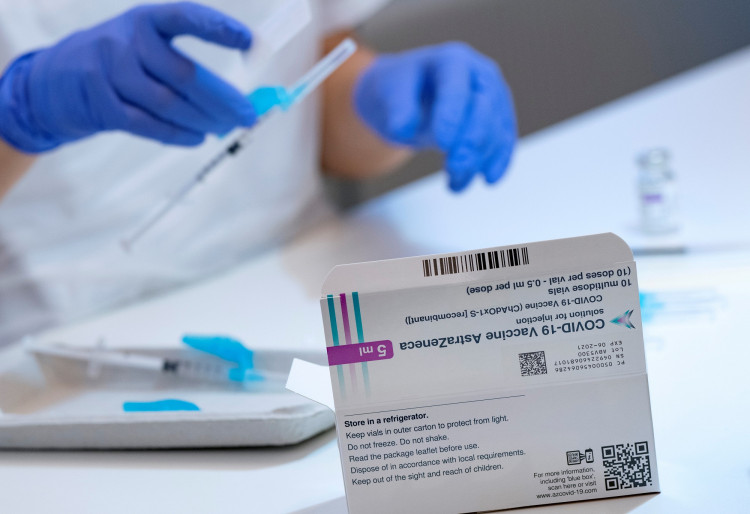The U.S. will share AstraZeneca vaccine supplies with other countries as they become available, the White House said.
As many as 60 million AstraZeneca vaccine doses will be available for export, but the White House did not specify where those vaccines would be delivered.
The Biden administration has faced immense pressure from a variety of sources, including the U.S. Chambers of Commerce, lawmakers, and prominent Indian-Americans, to ship AstraZeneca and other COVID-19 vaccines, as well as other life-saving medical supplies, to India, which is experiencing a deadly surge in coronavirus cases.
Critics have accused the government of hoarding the vaccine, while other countries are in dire need.
A group of former world leaders and Nobel laureates urged Biden earlier this month in an open letter to "exercise solidarity, cooperation and renewed leadership" by waiving the vaccine patents.
According to the U.S. Centers for Disease Control and Prevention, over 230 million Pfizer-BioNTech, Moderna and Johnson & Johnson vaccines have been administered in the U.S., with about 54% of Americans over the age of 18 receiving at least one injection.
The White House said Monday that it expected about 10 million doses of the AstraZeneca vaccine to be released once the Food and Drug Administration completes its review in the coming weeks. Another 50 million doses are said to be in various stages of production.
At a news briefing, White House representative Jen Psaki said FDA officials would conduct quality checks on doses before they were exported.
"Our team will share more details about our planning and who will be receiving offers from here, but we're in the planning process at this point in time," Psaki said.
The U.S. has already announced that it will provide raw materials to Indian vaccine manufacturers as the nation deals with a crippling increase in cases.
Initially, AstraZeneca's vaccine was supposed to be the first to obtain federal emergency authorization, and the U.S. government ordered enough for 150 million Americans until problems with the vaccine's clinical trial delayed clearance.
The company's 30,000-person U.S. trial didn't finish enrolment until January, and it has yet to file an emergency usage permit with the FDA.






